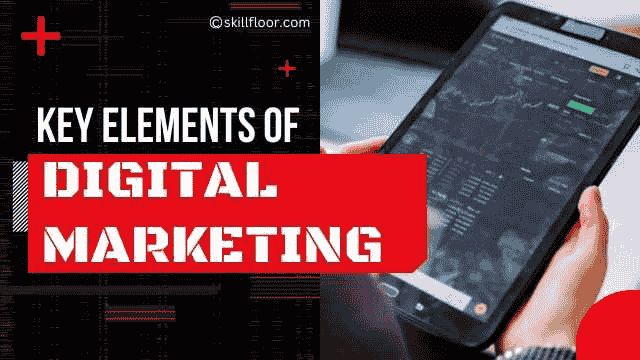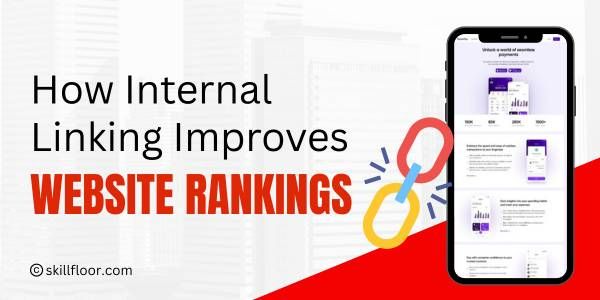Understanding the Key Elements of Digital Marketing
Understand the key elements of digital marketing, including SEO, content marketing, social media, email, PPC, and analytics. Boost visibility, engage customers, and grow your business

As a digital marketing expert, I’m excited to walk you through the key parts of digital marketing. Today, digital marketing is one of the most effective ways to connect with customers and grow your business. With so many tools and strategies available, it can sometimes feel overcome. I’ll simplify the main elements of digital marketing so you can easily understand how to use them. Whether you’re just starting or want to improve your skills, this guide will help you focus on what truly matters.
The Digital Marketing World
Digital marketing is now a core part of how businesses reach and engage with customers. With so much online activity, knowing how to use digital marketing tools effectively is crucial. There are many strategies and channels to choose from, making it challenging to know where to start or how to integrate them into a solid plan.
The Complexity of Digital Marketing
The world of digital marketing can seem complex because there are so many different tools and techniques available. From SEO and content marketing to social media and email campaigns, each tool has its purpose and best practices. Figuring out how to use all these elements together to achieve your goals can be tricky.
How Can We Use Digital Marketing Tools Effectively?
Given the many aspects of digital marketing, how can you use them effectively? The answer is to understand each element’s role and how they work together. Let’s dive into the main parts of digital marketing, see what they do, and learn how to use them for the best results.
Key Elements of Digital Marketing
Search Engine Optimization (SEO)
SEO is about improving your website so that it shows up higher in search results when people look for related topics. This helps more people find your site.
Key Points of SEO:
-
Keyword Research: Find out what words or phrases people use when searching for products or services like yours. Tools like Google Keyword Planner can help with this.
-
On-Page SEO: Make sure each page of your site uses relevant keywords and has good-quality content. This includes optimizing titles, descriptions, and images.
-
Off-Page SEO: Build links from other reputable websites to your site. This can help increase your site’s authority and ranking.
-
Technical SEO: Ensure your website is technically sound, such as loading quickly, being mobile-friendly, and having secure connections.
SEO takes ongoing effort but is vital for increasing your website’s visibility and attracting more visitors.
Content Marketing
Content marketing involves creating valuable content to attract and engage your audience. The goal is to provide useful information that makes your brand stand out.
Key Points of Content Marketing:
-
Content Creation: Develop various types of content like blog posts, videos, and infographics that your audience will find interesting and useful.
-
Content Distribution: Share your content through your website, social media, and email to reach a broader audience.
-
Content Strategy: Plan your content creation and distribution, set goals, and analyze how well your content performs to improve your strategy.
Good content marketing builds trust, attracts visitors, and keeps people engaged with your brand.
Social Media Marketing
Social media marketing uses platforms like Facebook, Twitter, LinkedIn, and Instagram to connect with your audience and build your brand.
Key Points of Social Media Marketing:
-
Platform Selection: Choose the right social media platforms based on where your audience spends their time.
-
Content Creation and Sharing: Create content that fits each platform and resonates with your audience.
-
Community Management: Interact with your followers by responding to comments and messages. This helps build relationships and manage your brand’s online image.
Social media helps you engage with your audience in real-time and increase your brand’s presence.
Email Marketing
Email marketing involves sending messages to people who have signed up to receive updates from you. It’s a direct way to communicate with your audience.
Key Points of Email Marketing:
-
Email List Building: Grow your list of subscribers by using sign-up forms and incentives. A well-organized list allows you to send targeted messages.
-
Campaign Creation: Design engaging and relevant emails, with clear subject lines and calls to action.
-
Analytics and Optimization: Track how your emails perform, such as open rates and click-through rates, to understand what works and make improvements.
Effective email marketing keeps your audience engaged and can help drive sales and build loyalty.
Pay-Per-Click (PPC) Advertising
PPC advertising lets you place ads on search engines and other sites, paying only when someone clicks on your ad. It’s a quick way to drive traffic to your website.
Key Points of PPC Advertising:
-
Keyword Selection: Choose the right keywords to target with your ads. This ensures your ads reach people who are searching for what you offer.
-
Ad Creation: Write and design ads that grab attention and are relevant to the keywords you’re targeting.
-
Bid Management: Set and manage your bids to control how much you pay per click. This helps you get the most out of your advertising budget.
PPC can provide immediate traffic and complement other marketing efforts to boost your results.

Analytics and Data Analysis
Analytics and data analysis help you measure and understand the success of your digital marketing activities. By tracking data, you can see what’s working and where you need to improve.
Key Points of Analytics and Data Analysis:
-
Tracking Metrics: Monitor important metrics like website traffic, conversion rates, and social media engagement to see how well your marketing efforts are performing.
-
Data Interpretation: Analyze the data to find trends and areas that need improvement. This helps you make informed decisions.
-
Reporting and Optimization: Use the insights from your data to create reports and refine your strategies for better results.
Using data effectively helps you improve your marketing strategies and achieve better outcomes.
As a digital marketing expert, I know how crucial it is to understand and use the key elements of digital marketing effectively. Each part—SEO, content marketing, social media, email marketing, PPC, and analytics—plays a vital role in building a successful digital marketing strategy. By learning how these elements work together, you can create a powerful approach that drives engagement, increases visibility, and helps you reach your marketing goals.
Digital marketing is always changing, so staying updated on the latest trends and best practices is important. By embracing the different elements of digital marketing and continually adapting to new developments, you can ensure that your strategy remains effective and successful.






























































